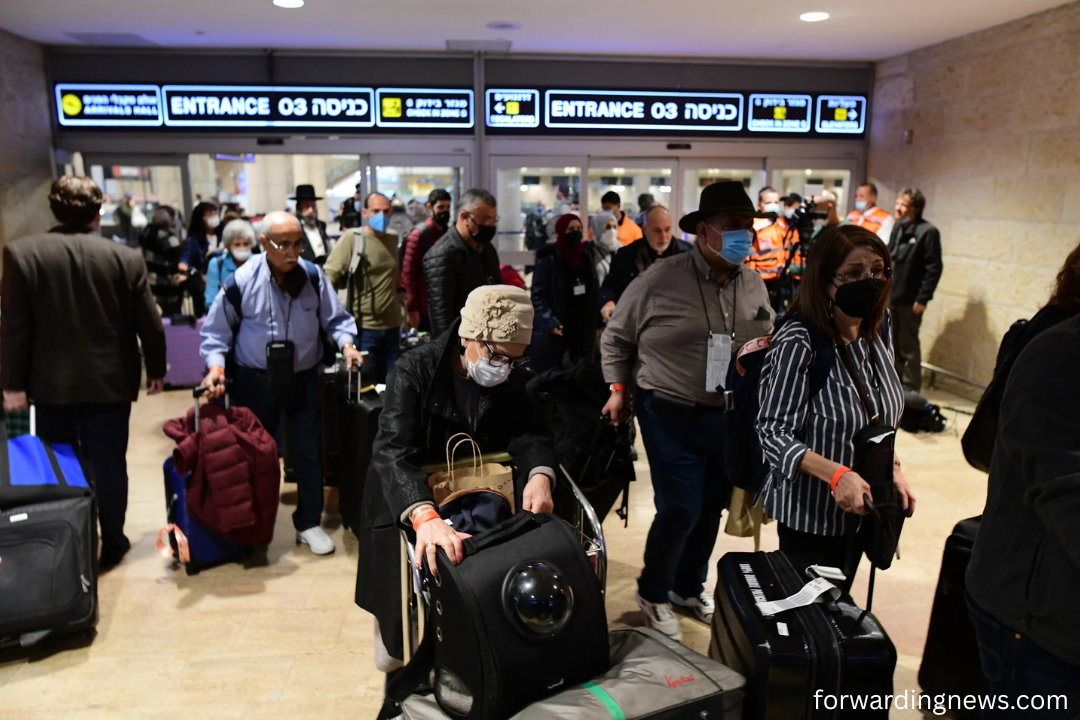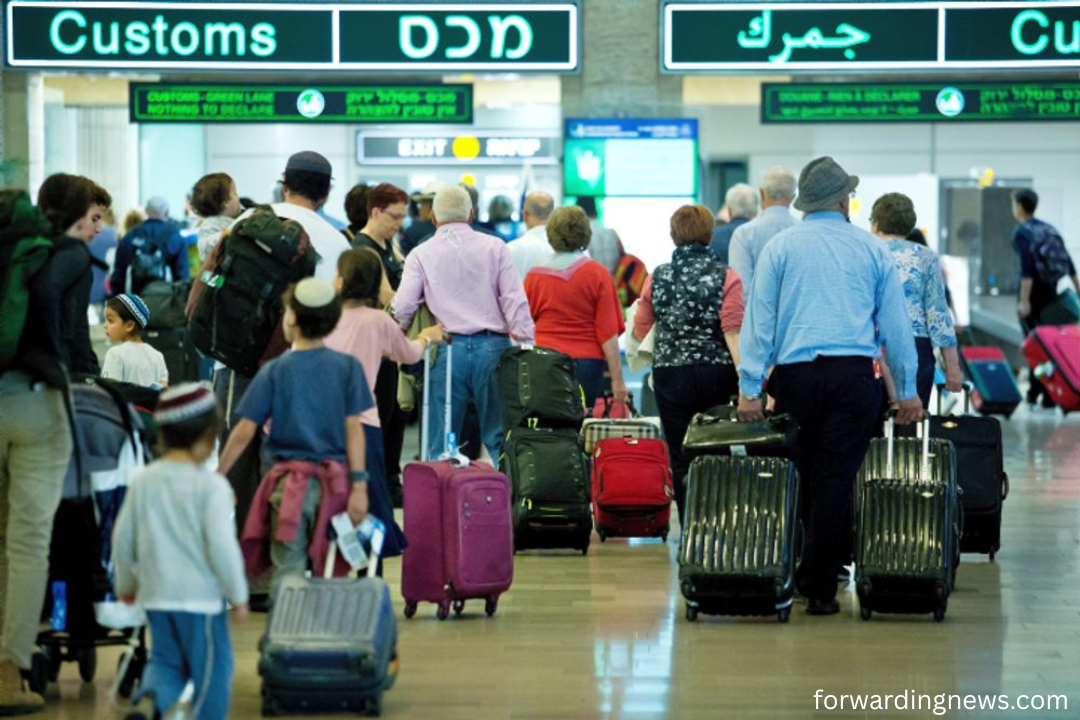China has officially issued a travel warning urging its citizens to reconsider or avoid travel to Israel due to escalating security risks in the region. This move follows a sharp increase in regional violence, geopolitical tensions, and safety incidents affecting foreign nationals.
The Chinese Ministry of Foreign Affairs released the advisory in response to recent developments that have made travel to Israel significantly more hazardous. Chinese citizens currently in Israel are also being advised to stay alert, avoid high-risk areas, and follow instructions from local authorities.
Increased Violence and Political Unrest Fuel Safety Concerns
The advisory was prompted by a surge in rocket attacks, airstrikes, and civil unrest affecting several cities in Israel. These incidents have heightened security risks for both locals and international travelers.
Ongoing conflicts involving militant groups, growing protests, and sporadic violence have created a volatile environment. China’s embassy in Israel emphasized that tourists and business travelers alike could be exposed to danger, particularly in urban centers and contested border areas.
Summary of the Travel Warning
The Chinese government’s warning highlights several major concerns contributing to elevated security risks in Israel:
- Escalation in military conflicts and cross-border attacks
- Civil unrest and violent protests in key cities
- Heightened anti-foreign sentiment in certain areas
- Limited access to safe evacuation routes in case of emergency
- Increased threat of terrorism targeting public spaces
The advisory strongly discourages non-essential travel to the region and advises Chinese citizens already in Israel to remain indoors during high-alert periods, stock emergency supplies, and keep communication lines open with the local embassy.
Geopolitical Factors Contributing to Security Risks
Tensions in Gaza and West Bank
One of the most significant contributors to current security risks is the conflict between Israeli forces and Palestinian groups, particularly in Gaza and the West Bank. Frequent exchanges of fire, airstrikes, and civilian casualties have increased regional instability.
Strained Diplomatic Relations
China has taken a neutral stance on the Israel-Palestine issue, but rising tensions in the Middle East could affect bilateral relations. These geopolitical complexities add a layer of unpredictability for Chinese nationals in the region, increasing overall security risks.
Influence of Global Alliances
Global alliances and diplomatic realignments are shifting power dynamics in the region. China’s travel advisory comes amid a wave of global travel warnings from countries like the United States, Germany, and France, all of which cite escalating security risks in Israel and neighboring territories.
Affected Areas and Travel Zones
Not all areas in Israel are experiencing the same level of threat. However, several high-risk zones have been specifically identified by Chinese authorities:
- Tel Aviv and Jerusalem: Both cities have seen recent protests and attacks, increasing their risk profiles.
- Northern Border Regions: Near Lebanon and Syria, where tensions remain high.
- Southern Israel: Proximity to Gaza makes these areas particularly vulnerable to rocket fire.
- West Bank Settlements: Frequent flashpoints for violence and civil unrest.
Chinese citizens are encouraged to avoid these areas entirely unless travel is essential. Even in relatively calmer cities, travelers should remain cautious as security risks can escalate without warning.
China’s Protective Measures for Citizens Abroad
The Chinese government has taken several steps to safeguard its nationals amid growing security risks:
- Embassy Alerts: The Chinese embassy in Tel Aviv maintains regular safety updates and emergency contact lines.
- Emergency Evacuation Planning: Contingency plans are in place to evacuate citizens if the situation worsens.
- Travel Insurance Recommendations: Citizens are urged to purchase comprehensive travel insurance that covers political unrest and evacuation.
Chinese tour companies and business operators with connections in Israel have also been advised to temporarily suspend travel-related operations until conditions stabilize.
Travel Industry Reacts to the Advisory
Chinese airlines and travel agencies have quickly responded to the government’s advisory. Major carriers are reviewing or suspending flights to Ben Gurion Airport, Israel’s central international hub. Some travel companies are offering refunds or rebooking options for clients who had planned trips to Israel.
In addition to leisure travel, the business sector is also being impacted. Due to heightened security risks, entrepreneurs, investors, and international students with interests in Israel are facing logistical and safety challenges.
Precautions for Chinese Citizens Already in Israel
For those who remain in Israel, the Ministry of Foreign Affairs has outlined critical safety guidelines:
- Avoid public gatherings: Protests and political demonstrations are highly volatile.
- Monitor local news: Stay updated with alerts from credible news sources and local authorities.
- Limit movement: Avoid travel during night hours or to unfamiliar areas.
- Keep documentation ready: Maintain access to passports, visas, and identification in case of emergency evacuation.
- Connect with the embassy: Ensure contact details are registered with the Chinese consulate for real-time alerts.
These steps are essential to mitigating security risks in a constantly evolving environment.
International Response to Israel’s Security Situation
China is not alone in its concern over escalating violence in Israel. Other nations, including the U.S., Canada, and Australia, have updated their travel warnings as well. The global consensus is that security risks in the region have reached their highest levels in recent years.
International organizations such as the United Nations and Red Cross have also warned about humanitarian challenges, including threats to civilians and disruptions in essential services. These factors amplify the urgency behind China’s decision to issue a strong advisory.
The Broader Impact on Middle East Travel
Israel’s growing instability is affecting tourism and international travel across the Middle East. Neighboring countries like Jordan and Egypt are tightening border controls, and airlines across the region are adjusting flight paths due to security risks.
China’s travel warning is part of a broader trend of caution being exercised by governments worldwide, signaling a turbulent time for international travel to the region.
What This Means for Future Travel Policies

The situation in Israel may prompt China to reevaluate its broader travel policies in conflict-prone areas. Future advisories may include detailed risk assessments based on real-time intelligence, diplomatic developments, and global trends.
Additionally, Chinese authorities may collaborate more closely with international agencies to monitor security risks and protect their citizens abroad.
Frequently Asked Questions (FAQ’s)
Why did China issue a travel warning for Israel?
China issued the travel warning due to escalating security risks, including rising regional violence, civil unrest, and threats to foreign nationals in some regions of Israel.
What are the main security risks travelers face in Israel?
Travelers may face security risks such as rocket attacks, terrorism, protests, and political instability, particularly in areas near Gaza, the West Bank, and specific urban centers.
Are Chinese citizens still allowed to travel to Israel?
Yes, Chinese citizens are not banned from traveling to Israel, but they are strongly advised to avoid non-essential travel and to remain highly cautious due to increasing security risks.
Which areas in Israel are considered the most dangerous?
Regions near Gaza, the West Bank, northern borders with Lebanon and Syria, and major cities like Jerusalem and Tel Aviv have higher security risks due to ongoing conflict and instability.
What should Chinese citizens do if they are already in Israel?
Due to heightened security risks, citizens already in Israel should stay informed through embassy alerts, avoid high-risk zones, carry necessary identification, and have an emergency plan.
How is the Chinese government supporting its citizens in Israel?
The Chinese embassy is providing real-time safety updates, emergency contact services, and evacuation support if security risks escalate further in Israel.
Will airlines and tour operators be affected by the warning?
Yes, many airlines and travel agencies are adjusting services, offering flexible booking changes, or suspending routes to Israel due to the increased security risks in the region.
How long will the travel warning remain in place?
The advisory has no fixed end date and will stay in effect until security risks in Israel significantly decrease. Travelers are advised to monitor updates from official government channels.
Conclusion
China’s decision to warn its citizens about traveling to Israel underlines the serious nature of escalating security risks in the region. While many tourists and expatriates continue to live and work in Israel without incident, the environment remains unpredictable. Travelers are strongly encouraged to stay informed, exercise caution, and adhere to official advisories. With regional tensions showing no immediate signs of resolution, safety must take precedence over convenience when considering travel to Israel or other high-risk destinations.

